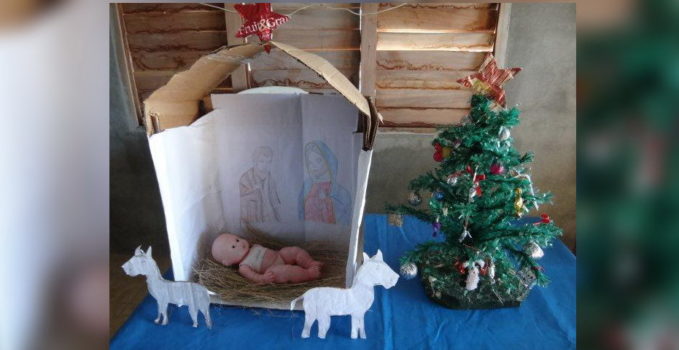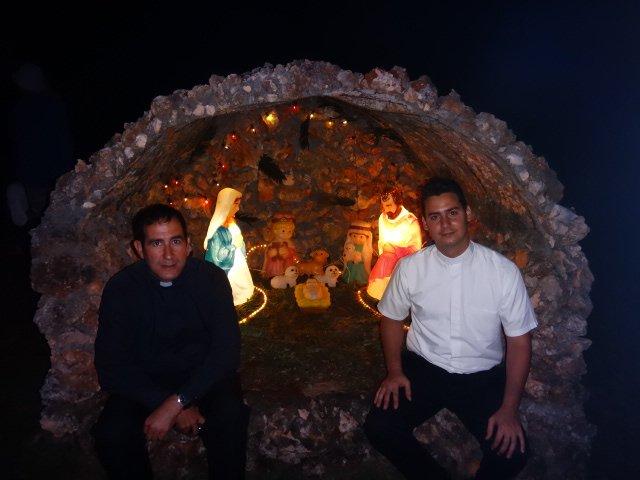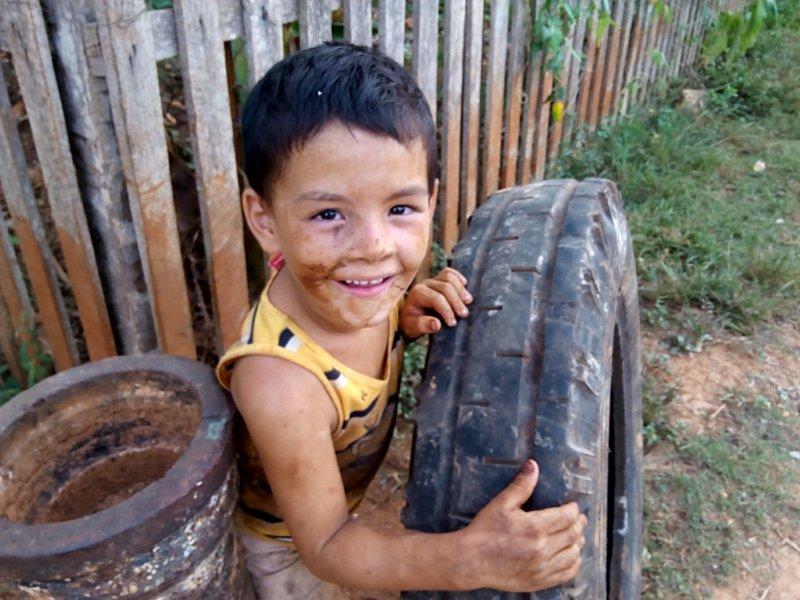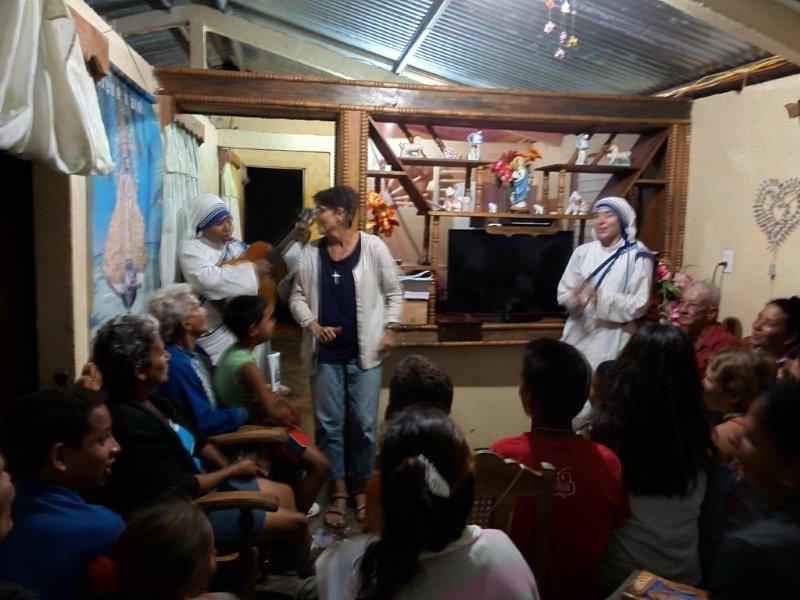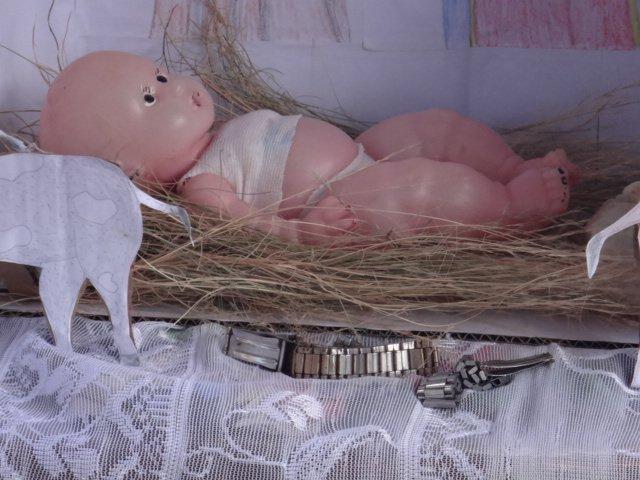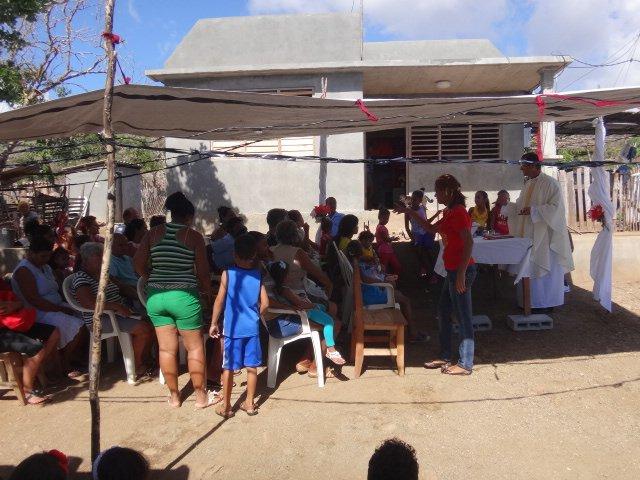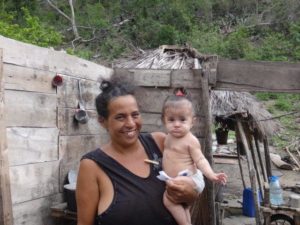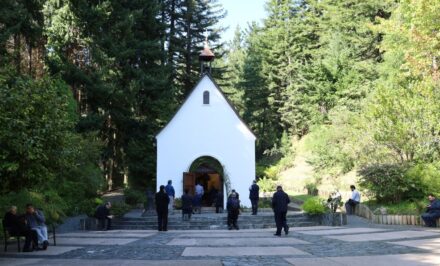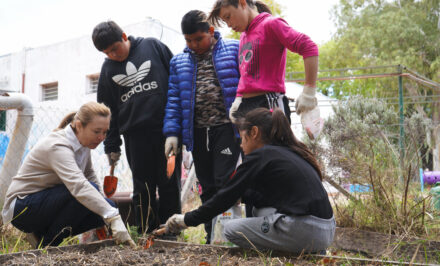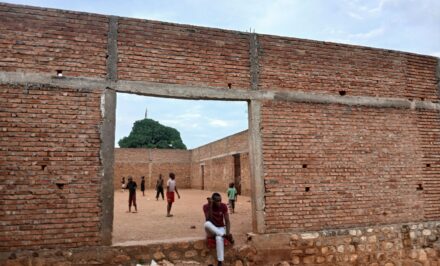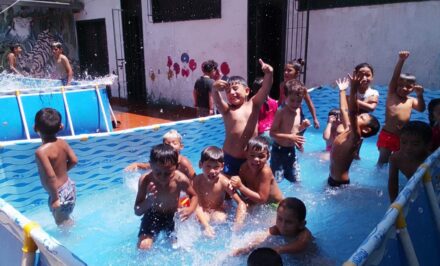CUBA, Fr. Alberto, Maisí’s pastor •
Catastrophes have a very brief “shelf life” in the media. Not only in the media, but also in donations of solidarity, prayers, and memory. There are simply so many, that even those that have a personal attachment touching the soul’s deepest parts, fade away…Hurricane Matthew? The parish of Maisí in the Diocese of Guantánamo, the parish where one of the Schoenstatt Fathers from Cuba worked until July 2016? It was in October, and because Cuba only suffered material damage, the world’s media did not pay too much attention to the people of this island who lost everything… Almost everything, since they did not lose their faith, their joy or their creativity. We share a report about Christmas in Maisí from the current pastor, Fr. Alberto.
Merry Christmas!
Merry Christmas! Yes, Merry Christmas! Because Christmas is not synonymous to a perfect world without anguish, Christmas does not mean the absence of sorrow and suffering. Christmas is the fulfillment of a promise: “I will come to you, to your time, to your joys, to your night; I will come and be with you, before the sun rises and in the harsh wait for sunrises that are late.” Christmas is the acceptance of a certainty: “I am with you.”
Sometimes we submerge ourselves in romantic spiritualties, in the naive desire of a world of angels with human faces. However, we were never promised an earthly paradise. We were promised a presence and really that is enough, it is enough to nourish hope and to rise everyday to give this world the good that it needs. We were brought to this earth to live, and life is an effort, a struggle; it is an option to take the greater good from the soul.
Look
This year my Christmas was marked by a word, “Look,” and I have tried to see in terms of Christmas. And I have seen:
I have seen my muddy children happily playing with an old truck tire. I have seen my communities singing as they usually do, respecting the written text and adding any musical note to the text that occurs to them at that moment; I have seen people walk for kilometers through the mud to attend Mass or the celebration, and beginning with a filled church despite the heavy rain.
I have seen people choose life in the midst of their collapsed roofs and their damp mattresses. They take time to plant flowers in all the empty cans. I have seen people who wish for electricity, but do not complain, for any reason, it if shuts down; I have seen people enjoy a piece of taro, or a piece of meat, when they have it, but do not become depressed or nostalgic when they do not have it, which is usually the case. They eat a plate of rice with a sauce that gives it color as the most normal thing in the world. I have seen how people live in a world without fruits, salads, desserts or milk for breakfast without becoming bitter. I have seen women washing clothes in the river, setting it aside when the priest arrives for the celebration to take time for prayer.
Mary, Joseph, and the Child in a cardboard manger
I have seen communities improvise simple Christmas plays, and since they do not have mangers, they make them with masculinized dolls, painting Mary and Joseph, making cardboard animals and decorating the little trees with stones wrapped in shiny candy wrappers and placing old metal bracelets and broken watches in the Three King’s hands.
I have seen a God who is providing, little by little for his people, and I have seen a people who is not ashamed to speak about God in public, to greet you saying: “Blessings,” or to comment in the midst of people: “I trust in God.”
Trust in God
I have seen a God who asks me to trust when I have to go to towns at night on a motorbike, in the rain, or in an old Jeep without doors, because my car is not available knowing that upon arriving, the people will be there, wet, muddy, some barefooted, waiting for a celebration of just forty minutes. Or when we go through the mountains without a spare tire, because when we went to fix it, there was no electricity. Trust that God can make inroads with the people when someone comes and asks me if I can: “Throw some water on their child,” or when human misery, so intrinsic to human beings as their generosity, is manifested in egoisms or verbal poison.
Yes, Merry Christmas, because in the midst of this damp and muddy imperfect world, God is making his way quietly and serenely in the midst of many hearts, and he is making joy and good will flourish in so many people.
Merry Christmas to all of you and thank you, thank you for all this time of prayer and generosity, thank you for turning your gaze and your hearts again and again to this piece of land, where the people say: “Columbus discovered Cuba and Matthew discovered Maisí.”
Thank you for the closeness, for such great patience with me, when I am late in writing. Thank you for transmitting the certainty that you are there, closer than geography indicates.
Merry Christmas to you, and a year where sight discovers everything flourishing from God’s simplicity, day by day, surely by our side.
Merry Christmas, my gratitude, and my blessing.
Matthew not only discovered Maisí. He also discovered Schoenstatt solidarity on social media. Contributions are still accepted:
or:
Schoenstatt-Priesterwerk e.V.
IBAN DE49 4006 0265 0003 3849 00
BIC GENODEM1DKM
Intended use: Cuba Maisi/P. Rolando Montes
Original: Spanish. Translation: Celina M. Garza, San Antonio, TX USA. Edited: Melissa Peña-Janknegt, Elgin,TX USA


